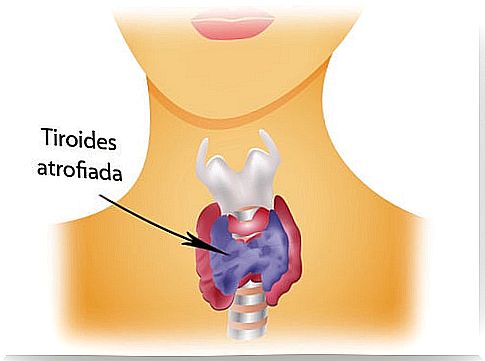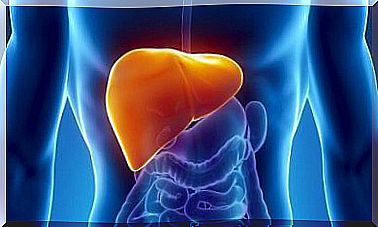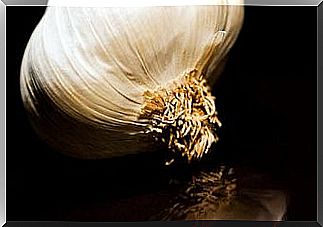Hypothyroidism: How To Take Care Of Your Thyroid

Hypothyroidism is a disease of the thyroid glands in which they stop producing the usual amount of thyroid hormone.
This disease has a higher incidence in women. Symptoms are many and varied, but are commonly associated with weight gain where people generally resort to ineffective diets to remedy it.
However, this can lead to nutritional problems that further aggravate the disease.
When our body has a slow metabolism, many complications can appear. Therefore, we have to be aware of all the symptoms and look for the doctor to receive the proper treatment.
Then, we offer some basic guidelines for you to have a better quality of life and know which diet is the most suitable.
Possible causes
- Thyroiditis: is when the thyroid glands become inflamed and fail to produce the necessary level of hormone. Thus, it is more common in women and adults over 50 years of age;
- Imune system;
- Some medications that contain lithium;
- Radioactive iodine that is sometimes used in certain treatments;
- Some congenital anomalies.
Symptoms
- Weight gain. Metabolism starts to work more slowly and, thus, we start to retain water, salts, fat, etc. However, don’t confuse them with menopause symptoms;
- Tiredness;
- Increased menstrual flow;
- Pain in muscles and joints;
- Pale skin and dry skin;
- periods of sadness;
- Very fragile nails and hair ;
- Constipation;
- Greater sensitivity to cold.
In addition, there are other symptoms that can appear if we don’t go to the doctor and don’t receive the proper treatment, characteristics that are visible when we suffer from hypothyroidism for a long time:
- Loss of taste and smell;
- Swelling in hands and feet;
- The skin becomes thick;
- Loss of eyebrow hair.

Hypothyroidism meet the diagnosis
- Your doctor will take a blood test to look at your thyroid hormone (TSH) levels.
- Other tests will also be done, such as, for example: cholesterol level, a blood count, sodium and prolactin levels, liver enzymes, etc.
proper diet
Our diet and medical treatment are essential for the thyroid to return to producing the normal and necessary levels of hormone. So, include the following nutrients in your diet:
Iodine
Iodine increases the production of thyroxine, thus favoring the improvement of the thyroid gland. It can be found, for example, in fish, shellfish, sea salt, iodized salt and seaweed.
But we advise that
Consume an adequate level of iodine. If in doubt, consult your endocrinologist, he will know the necessary dose according to your need.
Pistachios, walnuts, hazelnuts, lentils, tomatoes, apples, mangoes and pineapples are also rich in iodine, in addition to being very tasty.
Foods with Vitamin A
They will take care of your thyroids, as well as your skin and hair: endives, plums, eggs, sweet potatoes and cassava, spinach, caviar, watercress, carrots, persimmons.
Foods with Vitamin B
- Essential for the immune system, the heart and the nervous system.
- Sardines, anchovies, calf liver, chicken or lamb, oysters, mackerel, mussels, salmon, tuna, cod etc.
Fruits that increase the production of thyroid hormones
- Pomegranate, grapes, orange, lemon and fig.
Plants that help in the treatment
- Gentian-yellow : increases the production of thyroid hormones, we can use its root. Macere it for two days, strain the liquid and add a few spoonfuls of honey. The ideal is to drink two cups a day.
- Passionflower : relieves symptoms of insomnia, pain, sadness. An infusion of this dried plant is perfect.
prohibited food
Soybeans and their derivatives are contraindicated, as they contain levothyroxine.









